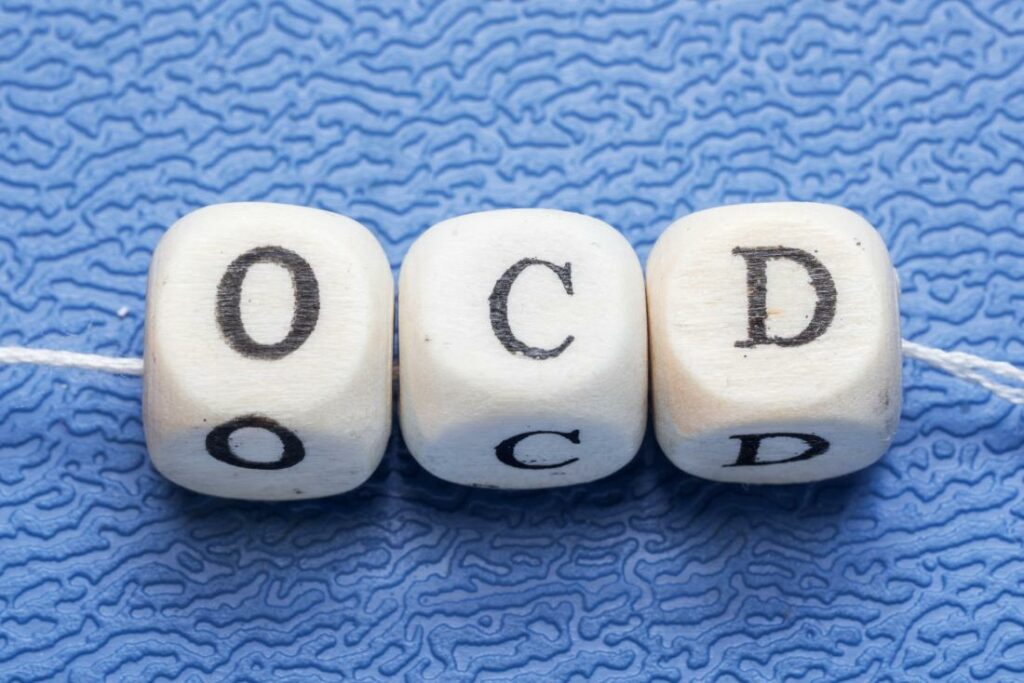Thoughts are a natural and important part of life. However, for those who suffer from OCD (obsessive-compulsive disorder), thoughts can be difficult and overwhelming. In this blog post, we will explore what OCD thoughts are, what they mean, and how to deal with them. If you or someone you know is struggling with OCD thoughts, please read on for helpful information and support!s.
Contents
What Are OCD Thoughts?

OCD thoughts are intrusive, repetitive thoughts that can cause extreme anxiety and distress. They’re often accompanied by physical or mental actions that people feel compelled to do to alleviate the anxiety caused by the thought, a process known as rumination. Common OCD thoughts include excessive worry about germs and contamination, fear of making mistakes, preoccupation with certain numbers or patterns, and irrational fears about harm coming to oneself or others.
These thoughts are also called obsessions. An obsession is any thought, image, or urge that repeatedly enters a person’s mind and causes them distress. The person may try to ignore the thought, but it can be extremely difficult to do so. People with OCD often feel like they must perform certain activities or rituals to relieve the anxiety caused by these thoughts. This can lead to behaviors such as washing one’s hands excessively or checking things multiple times for fear of making a mistake.
OCD is a serious condition that requires professional help to overcome. However, there is hope for those who seek treatment. With the help of a qualified therapist, people with OCD can learn how to manage their symptoms and live more productive lives.
Types Of OCD Thoughts
There are many types of obsessive-compulsive thoughts. These can include intrusive thoughts, which are unwanted and uncontrollable ideas that cause anxiety; rumination of past events or worries about the future; fear of harm to oneself or others; fear of contamination by germs or dirt; and superstitious beliefs.
Some of these others are:
Fear of Harming Anyone
One of the most common types of OCD thoughts is fear of harming someone else. This can involve an irrational fear that one might somehow cause harm to people or animals, either deliberately or by accident. People with this type of thought pattern will often go to great lengths to avoid any potential risk, such as constantly checking that doors and windows are locked before leaving the house.
Losing Control
Another common type of OCD thought is a fear of losing control over oneself or their environment. People with this fear may become obsessed with organizing things perfectly, making sure everything is in its place, and feeling like they have to plan out every detail of their lives meticulously to remain in control.
Fear Of Being Judged By Others
Sometimes people with OCD will develop a fear of being judged by others. These thoughts may lead to intense worry over what other people think or even an irrational fear that one’s actions are being monitored and evaluated constantly. These thoughts can lead to a great deal of distress and can make it difficult for someone with OCD to interact with other people.
Fear of Making Mistakes
Finally, some people with OCD may have thoughts related to fear of making mistakes. This type of thought pattern might involve a preoccupation with perfectionism or an irrational belief that any mistake could lead to catastrophic consequences. People who feel this way often put far too much pressure on themselves and can become overwhelmed if they feel that they are not meeting their expectations.
Symptoms Of OCD Thoughts

The symptoms of obsessive-compulsive disorder can vary depending on the type of thought pattern someone has. However, some common signs include:
- Obsessive rumination – spending a significant amount of time dwelling on particular thoughts or worries
- Compulsions – engaging in repetitive behaviors to reduce anxiety
- Intrusive thoughts – sudden, unexpected intrusive thoughts that cause distress
- Avoidance – avoiding certain situations or activities out of fear or anxiety
- Perfectionism – an unreasonable need to be perfect or achieve perfection
- Excessive fear of making mistakes
- Feeling overwhelmed by everyday tasks
- Uncharacteristic compliance with others’ opinions.
It is important to note that these symptoms may not always indicate OCD and could be signs of other mental health conditions such as anxiety disorders, depression, or substance abuse.
Reasons For OCD Thoughts
OCD thoughts can be upsetting and difficult to deal with. But why do we have these thoughts in the first place? Here are some reasons why OCD thoughts may occur:
1. obsessions may be based on real-life fears or worries
2. obsessions may be based on something that has happened to you in the past
3. obsessions may be a sign of a more serious mental illness, such as anxiety or depression
4. obsessions may stem from traumatic events that occurred to you when you were younger
5. obsessions can be caused by a combination of different factors, including genetics, environment, and personal experiences
Impacts of OCD Thoughts
The impacts of obsessive-compulsive disorder (OCD) thoughts can be severe and wide-ranging. People who experience OCD tend to have intrusive, repetitive, and often distressing thoughts that can interfere with everyday activities. These obsessions can have impacts such as:
Social Isolation: One of the most common effects of OCD is social isolation. People with OCD may feel too embarrassed or ashamed to talk about their thoughts and feelings with others, leading them to avoid social situations or try to keep their condition a secret. This can make it difficult to form meaningful relationships and increase the stress associated with living with OCD.
Depression: If left untreated, OCD can be accompanied by depression as well as anxiety due to the overwhelming nature of obsessive thoughts. Fear of failure and guilt over not being able to control one’s own mind can lead some people into depression, and this problem is compounded if someone feels like they have no way out from their obsessions.
Anxiety: Anxiety is perhaps the most common emotion experienced when dealing with obsessive-compulsive disorder thoughts. Constant worry and fear of the future can be overwhelming, and these thoughts can interfere with daily activities. People may also experience physical symptoms such as trembling, nausea, headaches, or difficulty breathing due to their anxiety.
Tips on How to Beat OCD Thoughts

If you’re plagued by obsessive thoughts, here are some tips on how to beat them.
1. Understand OCD thoughts. The first step is understanding what your thoughts are actually about. Are they dangerous? Urgent? Repeating? Once you know this, it’s easier to deal with the thought rationally.
2. Recognize when an OCD thought is happening. Pay close attention to when these thoughts come and go – that way, you can interrupt the cycle before it spirals out of control.
3. Challenge the validity of OCD thoughts. If a particular thought is truly worrisome or intrusive, try challenging its validity in your mind. For instance, if you think something might be harmful to yourself, ask yourself if there’s any evidence to back that up. Chances are there isn’t, so the thought should be dismissed outright!
4. Reframe OCD thoughts into more positive terms. When faced with troubling Thoughts, try thinking about them in less negative ways: for example “I’m worried about this issue but I shouldn’t be,” instead of “I must not think about this because it’s bad.” This will help shift your focus from Negative Obsessions (which usually lead to Anxiety and Depression) to Healthy Thought Patterns (which usually lead to productive action).
5. Take action to reduce OCD symptoms. Once you’ve identified the root of your OCD thoughts, it’s time to take some practical steps to address them. This could include deep breathing exercises, writing down your worries, or engaging in healthy rituals like prayer or meditation.
Overall, tackling OCD thoughts one by one is usually the best approach. However, if these thoughts are causing significant anxiety or depression, professional help may be a better option.
Conclusion
Obsessive Compulsive Disorder (OCD) is a mental health condition that causes intrusive, unwanted thoughts or images that can be extremely distressing. If you’re like most people who have had OCD thoughts in the past, you might be wondering what triggers them and how to deal with them. In this article, we have discussed the different types of OCD thoughts, the triggers that may cause them, and some tips on how to beat OCD.
For more information and guidance, please contact OCDMantra. OCD is a mental health disorder characterized by obsessions and compulsions. If you have any queries regarding OCD treatment, ERP therapy experienced therapists at OCDMantra can help: Book a trial OCD therapy session


